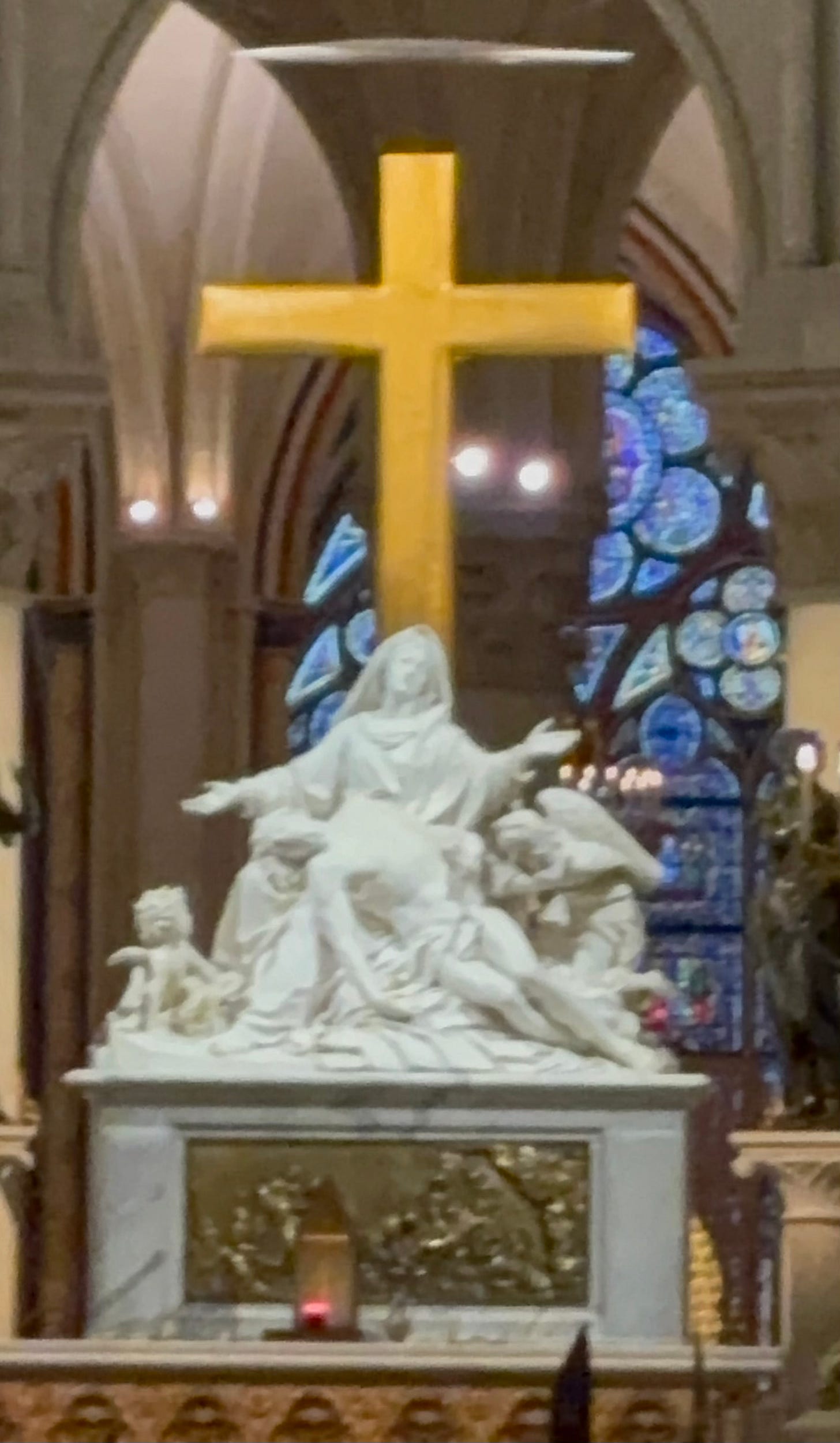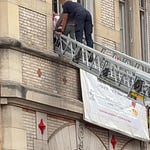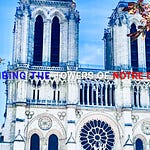My first visit to Notre Dame since fire nearly destroyed the cathedral in April of 2019. I imagine it looked this way when it was first completed in the 13th century: new, clean and flooded with light from the many stain glass windows and the magnificent rose windows that sit high up on the north, south and west sides.
Consider becoming a paid subscriber to support my work to bring the history and mystery of Paris to you. It’s only $6 a month or $48 for a year. Founding members never have to contribute again, for only $140. Thank you for reading and for supporting.
— Johnny
The smaller of the three rose windows is also the earliest. On the western side, it was finished in 1225. None of the original glass remains in this window, having been entirely recreated in the 20-year (1944-1864) renovations of Eugène Viollet-le-Duc.
The other two windows are much larger than the west window. This is due to a new, technlogical innovation in architecture that is among the features that define “Gothic.” The innovation is the “flying” buttresses that make the walls thinner and stronger, by distributing the weight of the roof off of the walls, and driving it down into the ground. This allowed these new “French style” churches to have thinner, higher walls.
The north window was finished around 1250. The south in about 1260. It was given to the cathedral by King Louis IX of France (Saint Louis) who also built the magnificent Saints-Chappelle, just west of Notre Dame.
The south rose window depicts scenes from the life of Jesus, as well as twelve medallions with the twelve apostles. Some of the glass in this window is believed to be original.

Because the church is named and dedicated to Notre Dame de Paris (Our Lady of Paris, or the Virgin Mary), one of the most sacred sites in the cathedral, in the south-east section of the transept. This area of Notre Dame is meaningful since in the 12th century, an altar to Mary stood in this very same place. The statue survived the 2019 Notre-Dame fire, and is an example of Late Gothic sculpture.
Notre Dame holds many other sculptures, both historic and modern. Miraculously, many survived the fire of 2019 with little or no damage. One in particular sits in a prominent place in the cathedral, the statue of the “Virgin of Pity’ more commonly known as a Pietà created by Nicolas Coustou (1723).

Next: More about the artwork of Notre Dame de Paris, its history and mystery
Bonne journée
Johnny
Venmo @John-Paris-36CashApp $janthony10
PayPal @JohnFrederick546
Book your Paris tour, based on my book, Paris Histories and Mysteries.
IG: @johnnyparis10
Live the Life of Your Dreams with my book, Prosperity Now! Personal/small group life-coaching prosperitynowlifeofdreams@yahoo.comI Ching readingsDream interpretation
My EP Paris Cowboy is available on Apple iTunes, Spotify, Napster, and many other music streaming appsOrder autographed CD’s johnny@johnafrederick.com
Paris Cowboy
Johnny Frederick · Ep · 2023 · 6 songs.
A Course in Miracles guidance prosperitynowlifeofdreams@yahoo.com
Sign up on my website:
http://www.johnafrederick.com
Substack: Paris and Prosperity Now!
YouTube channel: @johnnyfrederick01












